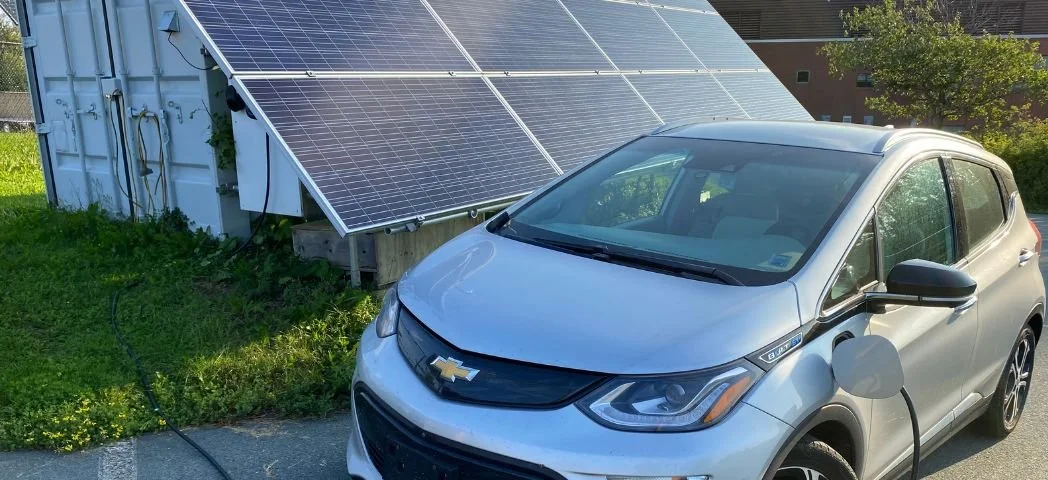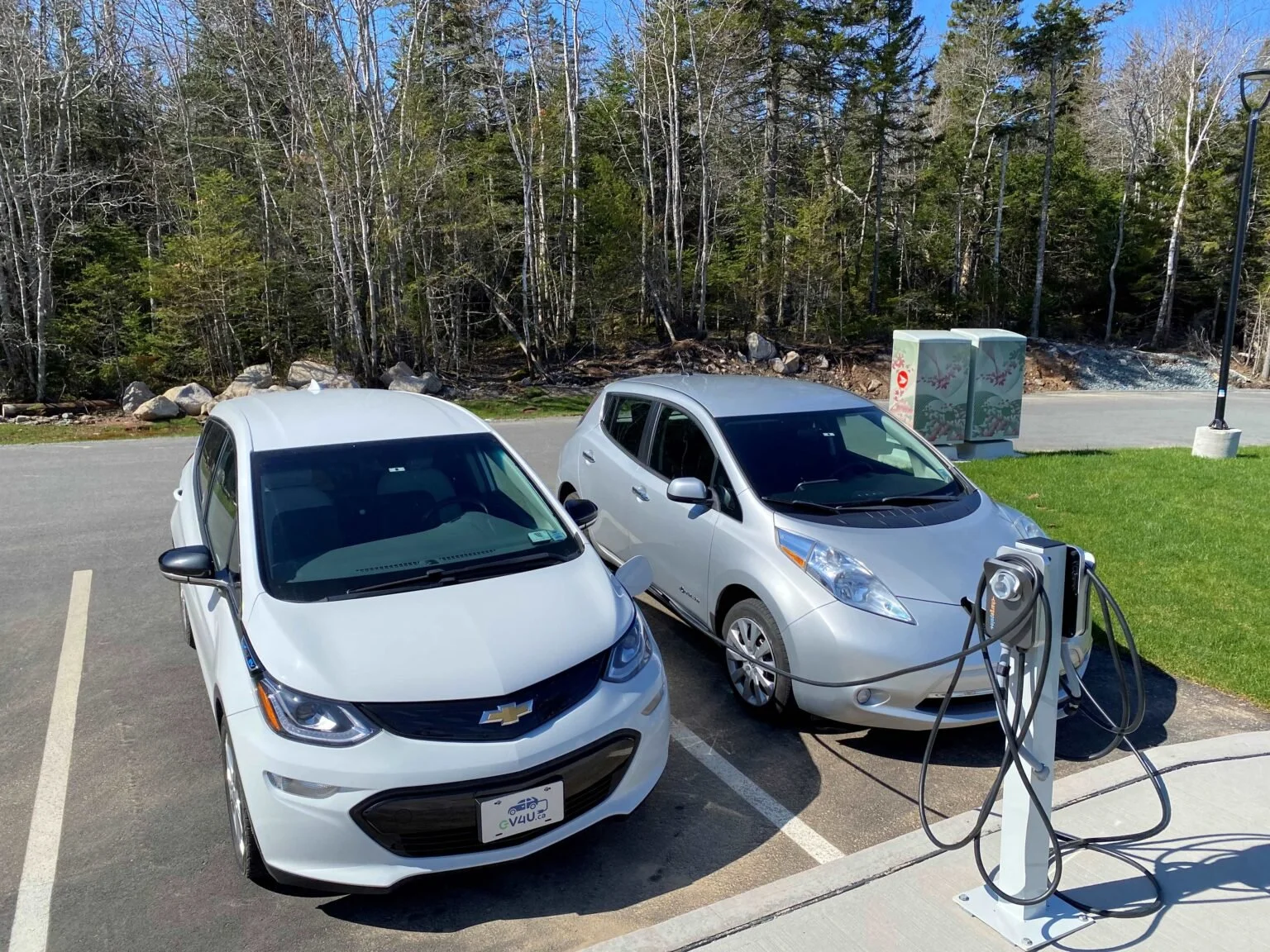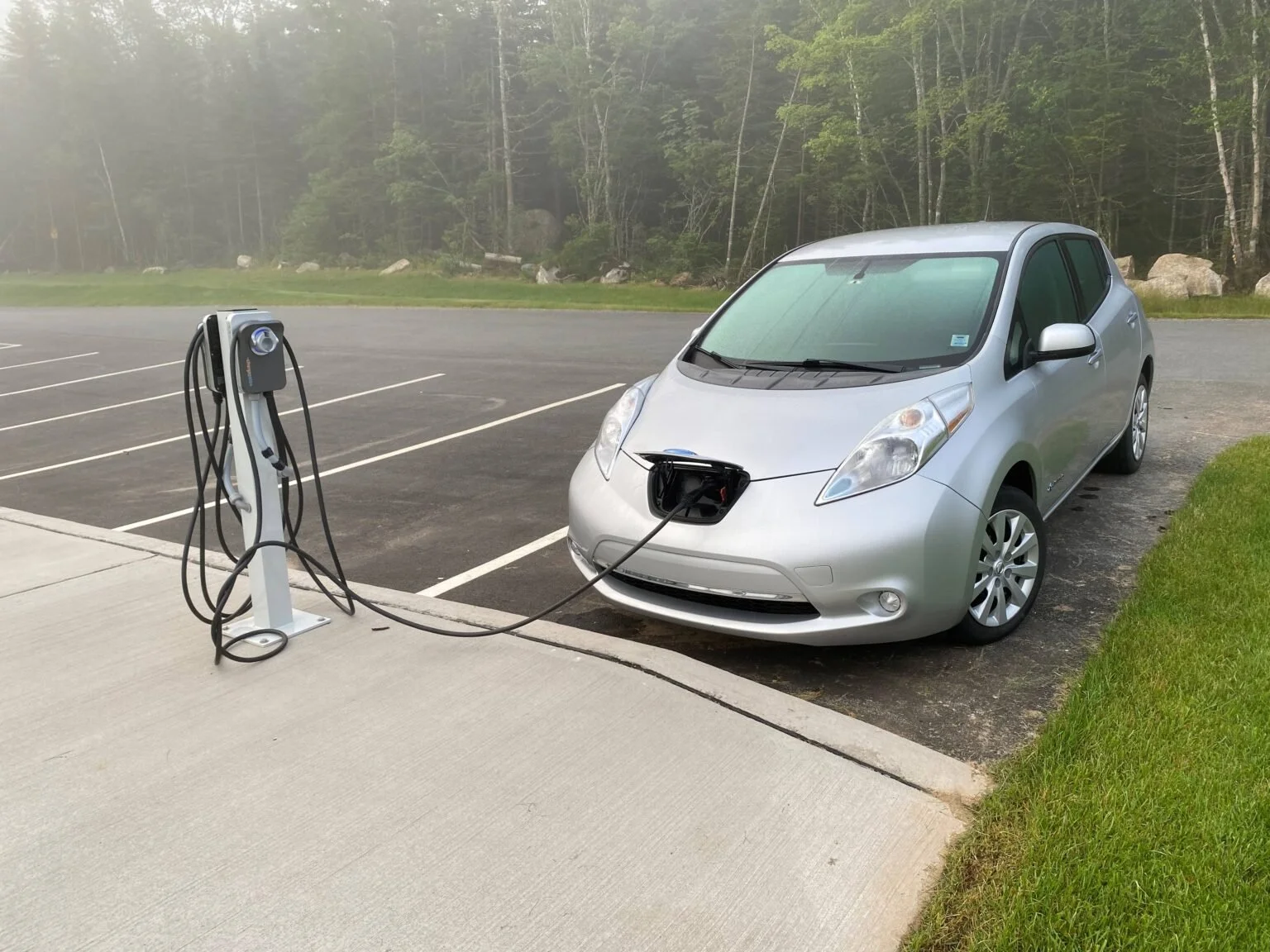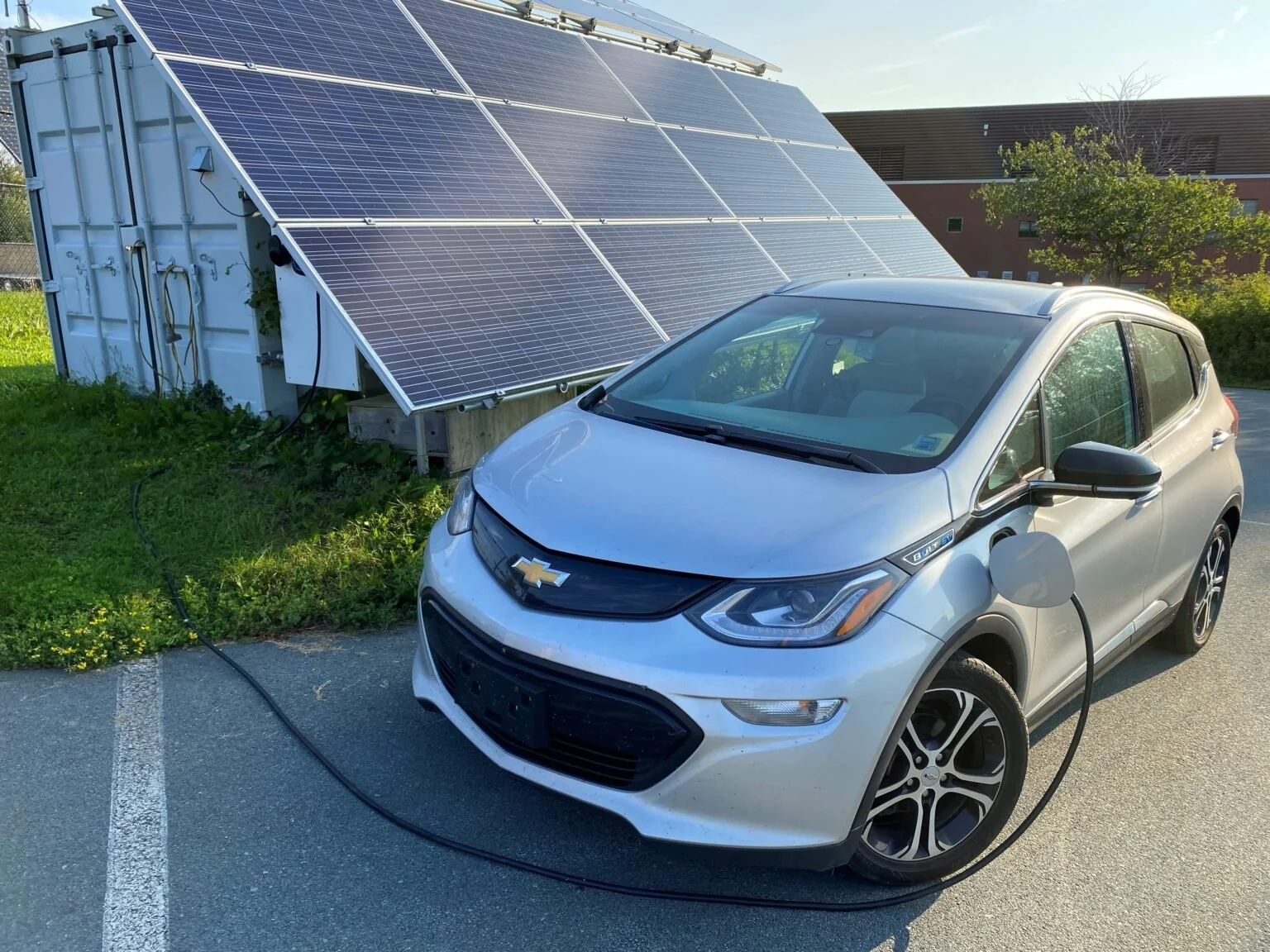Shared EV Pilot Project
Shared Electric Vehicle Pilot Project will lease a used electric vehicle (EV) and install a charger at a multi-unit residential building owned by Killam Apartment REIT. Engagement on how to use the EV as well as the ability to book through an online system and pay the hourly rate will be provided for the residents. This project will test the feasibility of offering shared EVs on a cost-recovery basis for future expansion.
Grant award: $35,000
Electric vehicles (EVs) are one crucial component of the energy transition for reducing GHG emissions and our dependence on oil. However, there are certain barriers that impact the feasibility of everyone owning an EV such as the cost and access to charging. Not to mention, by swapping out EVs for gas cars, existing issues posed by too many vehicles on the road (i.e. gridlock) won’t be solved. Gas cars no doubt need to be replaced, but that does not mean that everyone needs to own an EV, or even can own an EV.
EV4U’s shared EV program is one solution that is being explored through a project funded by the A2Z grant. “EV4U is a not-for-profit organization, and its goal is to facilitate the access to shared electric vehicles with a focus on apartment buildings and affordable housing,” said Wayne Groszko, the president at EV4U. The EV4U project was inspired by various car-sharing programs including CommunAuto in Halifax. This project differs from CommunAuto in that the car is available for all residents at a single building, the car would be electric, and a charger would be available at the building as well.
This is the second project that EV4U has piloted in the HRM. The first was at Sunflower Court, a 25-unit building that was built by Adsum House for Women and Children. This first project allowed EV4U to do some initial troubleshooting, identify areas for improvement, and adapt for the next phase, supported by HCi3.
EV4U is now piloting a shared vehicle phase at a Killam Properties building with over 200 apartments. The residents at the building were offered an app that can be used to book the car, open it, and use it for groceries, errands, or any other use that might be needed. EV4U wanted to prioritize affordability with this program, and so made the cost of renting $12 an hour, or a set daily rate. This rate is to cover the costs of the car, especially the insurance, which Groszko explained is the main operating cost for these vehicles.
“One of the things that we have learned is that insurance for a small fleet of shared vehicles in Canada is super expensive,” Groszko said. He went on to explain how there isn’t a lot of existing insurance policies that support the kind of use that EV4U would require, where multiple drivers can be part of one policy. “We heard that Progressive Insurance in the United States has now got a package that can work potentially… but they don’t sell insurance in Canada. So one of my next steps will be to see if there’s a sort of community-minded provider in Canada that could… adopt what Progressive is doing in the US.”
Throughout the Sunflower Court project, there were two big take aways. One was the high cost of insurance, making the operating cost of the shared EV too high to feasibly run the program, especially at a low cost-point for the residents. The other take away was that the shared EV chargers ended up being more widely used than the EV itself. They noticed various members of the community coming to use the EV charger. In one instance, an individual who was experiencing homelessness and living in their EV was then connected with Adsum and could access some of the valuable resources they had to offer. “It’s funny,” continued Groszko. “it doesn’t relate to the shared electric vehicle very much at all; it was the charger that made that situation possible.”
Other than these instances, they found that the majority of the time at Sunflower Court, the shared EV was being used for daily errands such as groceries, going to appointments, or family visits. With the on-going phase at the Killam building, Groszko said they’re finding uptake of the vehicle a little more difficult. “I think we just have to find a more effective way to reach people and promote the benefits of it, like say, even if your family already has a car: this may prevent or avoid the need to have another car, as an example.” EV4U is continuing to work with the communities they’re involved with on how best to reach them, and provide the benefits of having a shared EV in their community.







